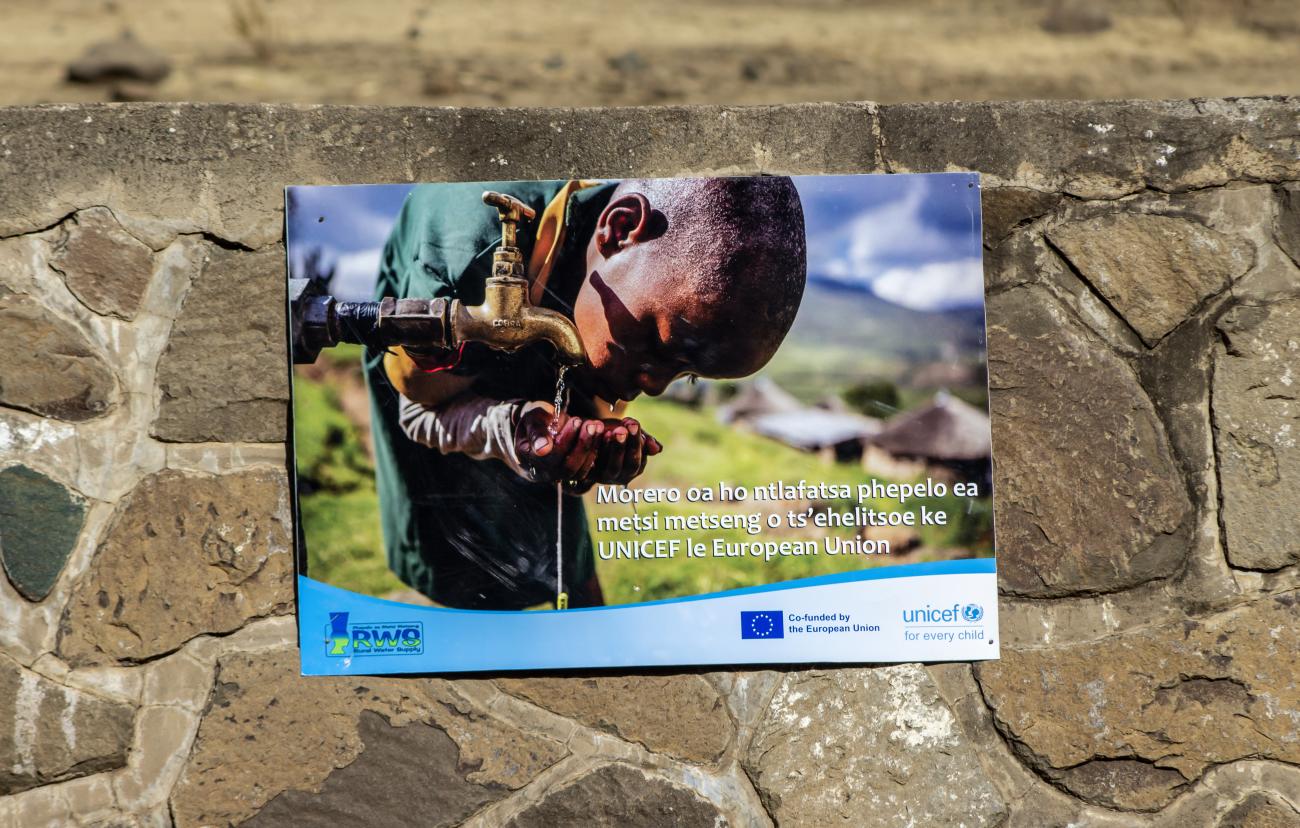In the mountainous Thaba-Tseka District of Lesotho lies Chaena village, a resilient community that has long faced challenges in accessing clean water. For decades, Chaena’s 269 residents and 160 households relied on a failing water system that provided only murky, red-tinted water in small amounts, often after hours of waiting at communal taps.
Malerato Letuka, a 48-year-old resident and member of the local Water Committee, recalls, “Our water used to come out red. The pressure was so low that if students were drawing water, we’d wait hours for our turn. It was hard to wash, cook, or grow vegetables.”
The transformation of Chaena village began with the Ntlafatsa Bana – Improvement for Children initiative, a collaborative effort by the European Union, UNICEF, and the Government of Lesotho. This initiative aims to strengthen the Government's capacity to efficiently deliver essential social assistance programs, including the Child Grants Programme (CGP), while also improving access to clean water, sustainable energy, nutrition services, and birth registration.
This intervention was vital, as local councilor Thabang Tefo explains: “A lot of children in the village used to suffer from diarrhea due to dirty drinking water, but all that is now in the past. We are so happy to have clean water; our children are no longer falling sick.”
The water system rehabilitation under Ntlafatsa Bana was a monumental task, involving re-plastering silt boxes, replacing taps, laying nearly a kilometer of piping, and building a 167-meter protective stone wall. Thanks to this collaborative effort, Chaena’s residents now have clean, abundant water for cooking, washing, and tending their gardens, ensuring a healthier future for the village’s children. The impacts extend beyond clean water alone. Chaena Primary School, educating 341 children from the village and nearby areas, now enjoys a steady water supply, allowing students to focus on learning without disruption.
For health worker Mapuleng Sello, this progress marks a shift in community health: “We’re looking forward to training on nutrition, food production, and income-generating activities to help our families grow vegetables and ensure children get necessary nutrients.”
To ensure the project’s sustainability, the community established a Village Water Committee, comprising the chief, councilor, and trained villagers like Malerato. “The training taught us not just how to fix pipes but how to keep the water clean and safe,” she says. Chief Likhetho Letuka adds, “Each household contributes M10.00 annually to cover maintenance costs. This small investment secures our future.”
Beyond water access, Ntlafatsa Bana further promoted birth registration in the village, ensuring every child is recognized under the law. Outreach and education programs have made it easier for families to register their children, granting access to essential services and safeguarding their rights.
Reflecting on the success of Ntlafatsa Bana, the Ambassador of the European Union, H.E. Paola Amadei, stated, “Our support in Lesotho through initiatives like this not only provides essential infrastructure but also highlights the EU’s ongoing commitment to empowering local communities. By working closely with our partners, we ensure the impact reaches far and wide.” Her words underscore the importance of collective efforts in driving meaningful change for communities like Chaena.
Chaena's commitment to sustainable water use—through practices like minimizing waste and securing taps—sets a model for conservation, inspiring a broader commitment to safeguarding water resources for future generations.











